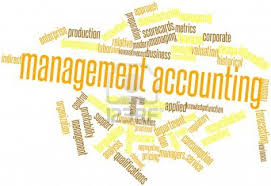

By the end of this course, delegates will be able to:
Financial Managers, Senior Accountants, Accounting & Budgeting Personnel, Financial and non-financial professionals who wish to test their high performance and high potential knowledge, skills and attitudes with other similar individuals, Anyone who wishes to reinforce their knowledge of financial functions/processes and who requires a more integrative financial view
People Management
Leading Teams
Strategic Planning
Negotiating for Results
Operational Excellence
Getting Started with Best Practices in Finance and Accounting
Best Practices in Early Review and Projections of Strategy via Financial Statements
Best Practices in Annual Reports, Footnotes, and Corporate Governance
Best Practices in Industry / Financial Analysis and Balancing the Scorecard
Best Practices in Net Present Value Thinking and Next Generation Financial Modelling
CDGA attendance certificate will be issued to all attendees completing minimum of 75% of the total course duration.
| Code | Date | Venue | Fees | Register |
|---|---|---|---|---|
| ACC101-02 | 01-06-2026 | Amsterdam | USD 6950 | |
| ACC101-03 | 13-09-2026 | Amman | USD 5450 | |
| ACC101-04 | 06-12-2026 | Cairo | USD 5450 |

This program provides an understanding of the fundamentals of financial management, with a focus on some international aspects relating to areas such as foreign exchange rate and interest rate risk ex ...
.png)
The management accounting field focuses on two areas: managerial accounting and financial management of the business enterprise. Managerial accounting is concerned with the techniques, controls, syste ...

Finance can add value to strategic decisions, if it is appropriately linked in to the strategic goals and objectives of the firm at corporate and business unit levels. This course demonstrates how fin ...
Providing services with a high quality that are satisfying the requirements
Appling the specifications and legalizations to ensure the quality of service.
Best utilization of resources for continually improving the business activities.
CDGA keen to selects highly technical instructors based on professional field experience
Since CDGA was established, it considered a training partner for world class oil & gas institution
3012, Block 3, 30 Euro Business Park, Little Island, Co. Cork, T45 V220, Ireland
Mon to Fri 09:00 AM to 06:00 PM
Contact Us anytime!
Request Info